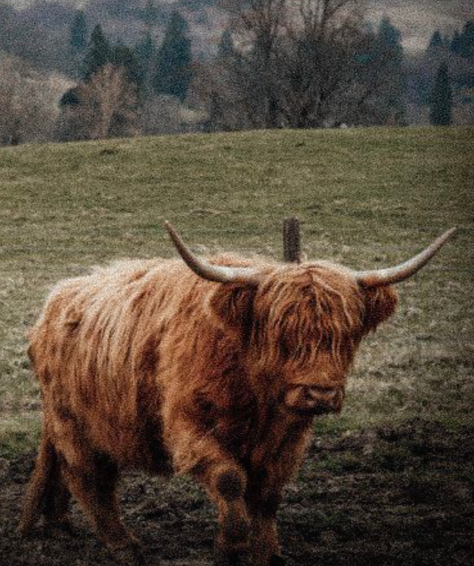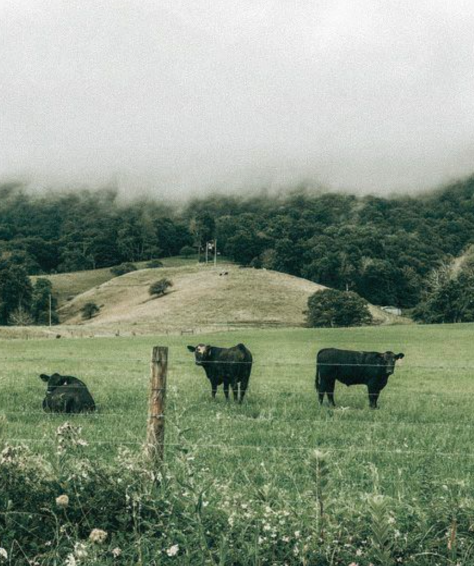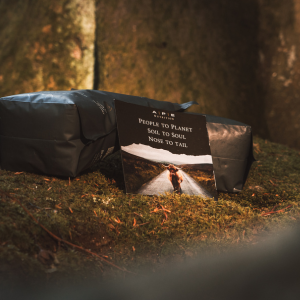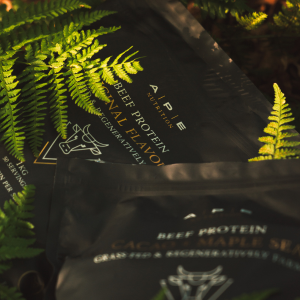Why Regenerative & Organic Farming

“Our body is essentially soil and water. The quality of our soil and water determines the quality of our food, our body and our life”
- Sadhguru
“In traditional agriculture, the sol is the mother. She’s the mother who gives, to whom you must give back.”
- Vandana Shiva
The Soil
The Earth’s soil is one of the most important (yet overlooked) factors when it comes to the health of this planet, the environment, animals and human beings. Our ancestors knew just how important healthy soil was to our survival as a species and to that end, undertook long and treacherous journeys in search of more fertile lands. They were looking for soil full of life, which contained a large amount and diverse range of micro-organisms. This is because they understood that nutritious soil results in superior food, from the perspective of nutrient density as well as flavour. Fast forward to today and modern farming practises are destroying microbially rich and diverse soil systems. Pesticides, herbicides, fungicides and other chemical inputs are killing the soils microbes and leaving it lifeless. As a result, lots of farms have lost so much of their soil biome that they’re now locked into a relationship with these chemical inputs to keep producing food. In extreme circumstances, some areas are even experiencing desertification, a process by which land is degraded to such an extent that biological productivity is lost. It’s estimated that the earth’s fertile soil is being degraded at a rate of 24 billion tonnes per year. This has some devastating consequences for the surrounding environment. As the soil becomes more arid, it loses its ability to retain water, which can lead to flooding and pesticides run-off into nearby rivers. This results in the poisoning of natural bodies of water and often leads to the death of fish and other aquatic life.
On the other hand, farms like White Oak Pastures in the US, are demonstrating how using regenerative farming practises actually benefits the local ecosystem. Not only do they not use any pesticides that can run off into nearby rivers, but they’re also sequestering lots of carbon into their soil. On average, factory farmed beef gives off roughly 33 pounds of C02 for every pound of beef produced. In comparison, White Oak Pastures store 3.5 pounds of C02 in their soil for every pound of beef produced. This demonstrates that grass-fed beef and holistic land and animal management can be tools to help reverse the human impact on climate change. It’s estimated that if organic and regenerative farming was used across every farm in the UK, at least 23% of agriculture’s current greenhouse gas emissions would be offset. That’s why at APE, all our ‘nose-to-tail’ products, which are made from meat, are sourced from regenerative farming practises and everything else we create is certified organic by the Soil Association.

“It’s what fuels our development, immunity and nutrition, enabling our production of energy, micronutrients and regenerative pathways. Within every organ system throughout our whole body, it’s this unique niche of bacteria, fungi, and yeast that nurtures our human cells.”
- Zach Bush
The Importance of Eating Organic
Organic farming aims to protect the Earth’s soil and the environment, whilst producing food as naturally as possible. Under the organic standards, food can not be genetically modified (GMO) and strict limitations are applied to the use of chemical inputs. For example, organically certified farms are restricted to using 15 pesticides derived from natural ingredients such as garlic. However, truly regenerative farms tend to rely on their skill and understanding of the ecosystem over the use of chemicals. The Biggest Little Farm documentary highlights this perfectly when they allow their ducks to eat the snails that are consuming their crops. Compare this to non-organic farms, who predominantly rely on the use of synthetic pesticides, herbicides and fungicides that destroy the soil and damage the health of humans and animals that consume them. These chemicals are designed to kill insects, weeds and fungi but when consumed on food, they destroy gut microbes, which play a vital role in both human and animal health.
The gut microbiome is an extraordinary mix of bacteria and fungi, which plays a critical role in nutrient delivery as well as acting as the front line for your immune system. Also, people like Dr Zach Bush are demonstrating that Glyphosate, the base ingredient in the world’s main and most infamous herbicide ‘Roundup’ also destroys the junctions between the gut wall. This results in gut lining cells not being able to communicate effectively, as it throws out our bodies ability to carry out apoptosis. This term refers to programmed cell death, a process that a healthy body does naturally when a cell becomes damaged. However, if this is impaired, cells that are damaged can multiply instead, which can have a devastating impact on human health. Eating truly organic and properly prepared foods adds to the beneficial organic matter in our gut and soil as opposed to degrading it, which in turn lays the foundations for human and planetary health. That’s why you’ll never see us sell a product that’s not organic and / or from regenerative farming practises where these chemicals aren’t used.

“In addition to providing nutrient dense food, well-managed cattle can graze on land that can’t be used for crops, improving soil quality and sequestering carbon.”
- Dianna Rogers
The Importance of Grass-Fed / Grass-Finished
Raising cattle in an environment where they’re truly free to roam on clean organic pastures for the entirety of their life is the gold standard for animal welfare and nutrition. The cattle we use for our nose-to-tail products spend as much of the year as weather conditions allow outdoors, eating a natural diet of grass. When inside (at night or when it’s too cold), they have plenty of space and are fed hay (dried grass and plants), which results in them living a low stress and anti-inflammatory life. The areas on which the cattle graze are systematically rotated to ensure the soil is protected and nutritionally rich. Finally, antibiotics are only used when absolutely necessary. Farming cattle in this way results in fertile soil, which can sequester carbon. As well as healthy, happy animals that when consumed are greatly beneficial to human health.
How the cattle we use for our nose-to-tail line are raised sits in stark contrast to factory farming. Under these systems cattle are often kept indoors and in too confined a space for large periods of their life. They are fed an unnatural diet, often including genetically modified feed like soy, covered in artificial chemicals. This leads to the animal living a stressful and inflamed life, which results in farmers routinely having to use antibiotics. It’s not uncommon for hormones to also to be used to promote growth and boost weight gain. Factory farming practises are cruel, damage the earth and result in a nutritionally inferior end product. We believe that to achieve true health for this planet and all its inhabitants, we need to move away from these disconnected farming practises and instead work with nature. Regenerative and organic farming does just that.





